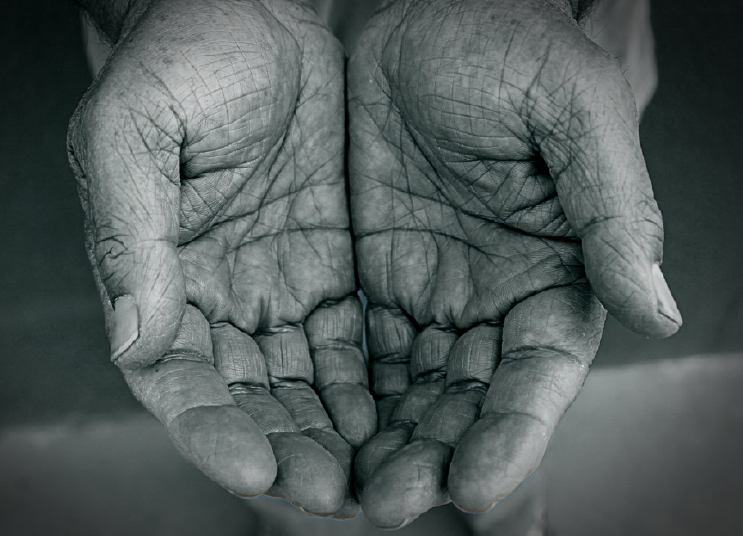By Maxmilian Wechsler
| GOVERNMENT after government has tried without much success to find a solution to the problem of beggars on the streets of Bangkok and other cities in Thailand. The last attempt, a series of coordinated nationwide crackdowns earlier this year, netted over 1,100 beggars, including more than 400 foreigners. But many of them are back on the streets. |
The current government is now trying something different, replacing the old law with the Control of Begging Act, which, among other features, distinguishes between beggars and buskers. It is not clear when it will get final approval, however.
Under the new regulations, Thai beggars caught on the streets will receive occupational training so they can provide for themselves. Those who are unable to work because of disabilities will be sent to social welfare centers. Foreign beggars will be deported back to their countries.
Meanwhile, buskers will be required to obtain permission from the local administrative districts and issued a license before being allowed to perform on the street.
So far the proposed law has received a mostly cool response from the media and public. The Bangkok Post said in an April 29 editorial:
• “Already there’s talk of using force and introducing new red-tape bother for some of society’s worst-off people. It is troubling that the plans announced make no mention of dealing at last with gangs who exploit and boss the unfortunate beggars.
• “The current plan calls for sweeping beggars from the streets, deporting the non-Thais and sending the others to designated occupational training. Busking will be ‘allowed’ as long as the performers obtain the correct papers from officials who can easily withhold them for any reason, or for no reason.
• “One must hope that the ministry [Social Development and Human Security Ministry] and others will think carefully before putting heavy restrictions on the poorest, most vulnerable people in society.”
Strangely, the same sense of urgency isn’t directed towards other illegal activities committed daily, such as vendors occupying public footpaths and selling counterfeit products, sex toys and drugs. Many of these involved are foreigners, most notably from Myanmar.
Then there are the mobile bars that violate a slew of laws by selling alcohol along Sukhumvit Road. No action is taken against them either!
Meanwhile, it appears that some beggars are already prepared for the new laws. One man on Silom has now taken up playing harmonica so that he can be classified as a busker, while a woman with a baby who usually sits on a pedestrian bridge outside Pantip Plaza now also sells necklaces and rings which technically makes her a vendor.
Tourists and expats are often surprised to learn that many of the beggars on the streets are from Cambodia or Myanmar, and many disagree with the periodic government crackdowns. “In a megacity like Bangkok with 8.5 million people, a few beggars and buskers shouldn’t be a problem,” commented one expat.
Ironically, westerners sometimes turn to begging when their money has run out or has been lost in a scam. They don’t usually last long as the police quickly move them along.
A senior police officer who didn’t want to be named said that it’s natural for people to feel pity and compassion for the beggars, especially the disabled, but he added: ‘Don’t give them money because many are under the control of gangs and human traffickers. Most of them have to give the money they collect to someone. The new laws should especially protect children who are victims of these gangs.
“As for the bands playing on the street, generally speaking I don’t think they are controlled by gangs, but it is hard to be sure.”
While officers from the Bangkok Metropolitan Administration (BMA) are responsible for policing the city’s pavements and making sure vendors and hawkers are in compliance with regulations, they have no authority to arrest anyone, including foreign beggars. This is the duty of the police.
But at the end of the day, even after they’ve been arrested, many beggars return to the streets or are replaced by others.
“What we can do is just tell them to go away,” said one BMA officer. “They know our limitations and they come back when we leave. It is like a game. Sometimes the police don’t want to arrest them because it is a waste of their time. They are busy with other, more serious crimes.”
Under the new regulations, Thai beggars caught on the streets will receive occupational training so they can provide for themselves. Those who are unable to work because of disabilities will be sent to social welfare centers. Foreign beggars will be deported back to their countries.
Meanwhile, buskers will be required to obtain permission from the local administrative districts and issued a license before being allowed to perform on the street.
So far the proposed law has received a mostly cool response from the media and public. The Bangkok Post said in an April 29 editorial:
• “Already there’s talk of using force and introducing new red-tape bother for some of society’s worst-off people. It is troubling that the plans announced make no mention of dealing at last with gangs who exploit and boss the unfortunate beggars.
• “The current plan calls for sweeping beggars from the streets, deporting the non-Thais and sending the others to designated occupational training. Busking will be ‘allowed’ as long as the performers obtain the correct papers from officials who can easily withhold them for any reason, or for no reason.
• “One must hope that the ministry [Social Development and Human Security Ministry] and others will think carefully before putting heavy restrictions on the poorest, most vulnerable people in society.”
Strangely, the same sense of urgency isn’t directed towards other illegal activities committed daily, such as vendors occupying public footpaths and selling counterfeit products, sex toys and drugs. Many of these involved are foreigners, most notably from Myanmar.
Then there are the mobile bars that violate a slew of laws by selling alcohol along Sukhumvit Road. No action is taken against them either!
Meanwhile, it appears that some beggars are already prepared for the new laws. One man on Silom has now taken up playing harmonica so that he can be classified as a busker, while a woman with a baby who usually sits on a pedestrian bridge outside Pantip Plaza now also sells necklaces and rings which technically makes her a vendor.
Tourists and expats are often surprised to learn that many of the beggars on the streets are from Cambodia or Myanmar, and many disagree with the periodic government crackdowns. “In a megacity like Bangkok with 8.5 million people, a few beggars and buskers shouldn’t be a problem,” commented one expat.
Ironically, westerners sometimes turn to begging when their money has run out or has been lost in a scam. They don’t usually last long as the police quickly move them along.
A senior police officer who didn’t want to be named said that it’s natural for people to feel pity and compassion for the beggars, especially the disabled, but he added: ‘Don’t give them money because many are under the control of gangs and human traffickers. Most of them have to give the money they collect to someone. The new laws should especially protect children who are victims of these gangs.
“As for the bands playing on the street, generally speaking I don’t think they are controlled by gangs, but it is hard to be sure.”
While officers from the Bangkok Metropolitan Administration (BMA) are responsible for policing the city’s pavements and making sure vendors and hawkers are in compliance with regulations, they have no authority to arrest anyone, including foreign beggars. This is the duty of the police.
But at the end of the day, even after they’ve been arrested, many beggars return to the streets or are replaced by others.
“What we can do is just tell them to go away,” said one BMA officer. “They know our limitations and they come back when we leave. It is like a game. Sometimes the police don’t want to arrest them because it is a waste of their time. They are busy with other, more serious crimes.”




















